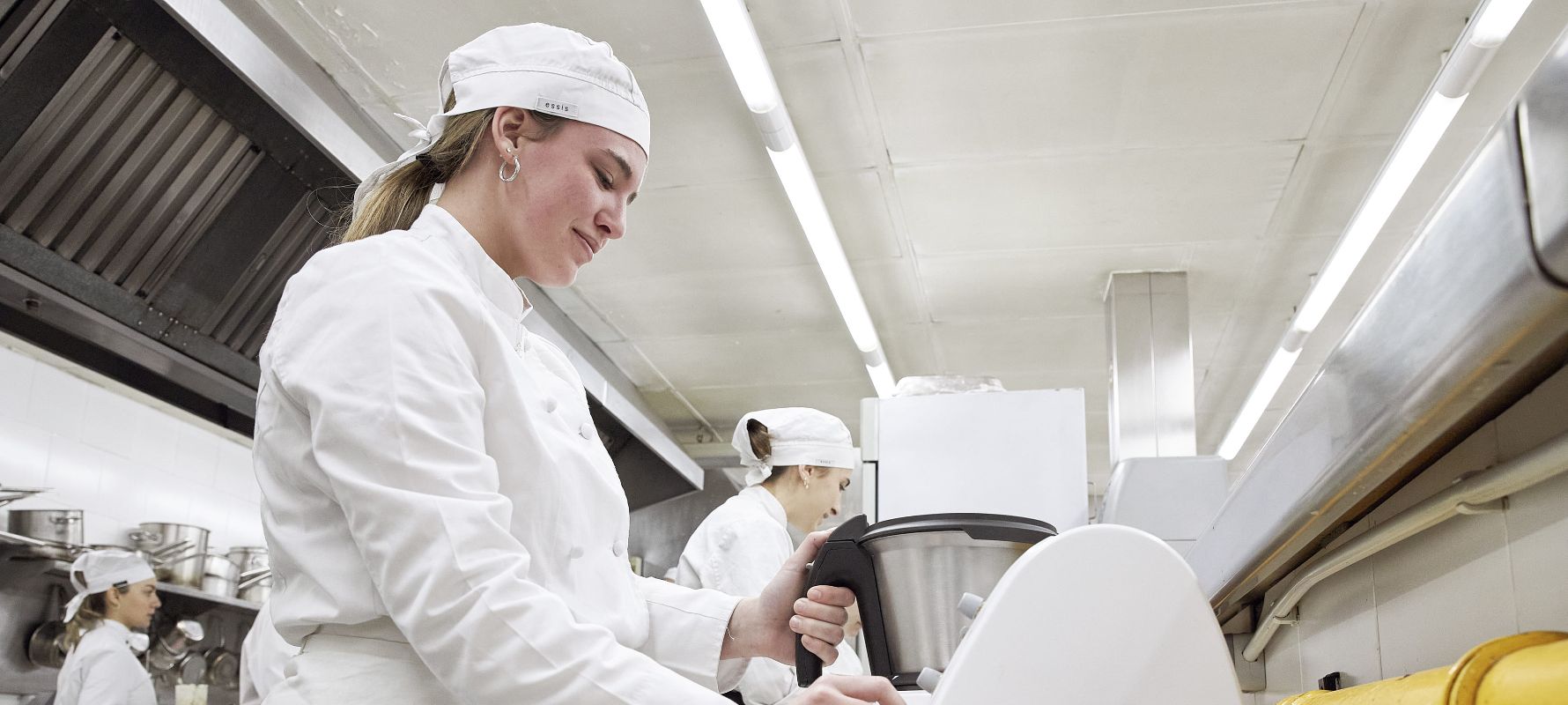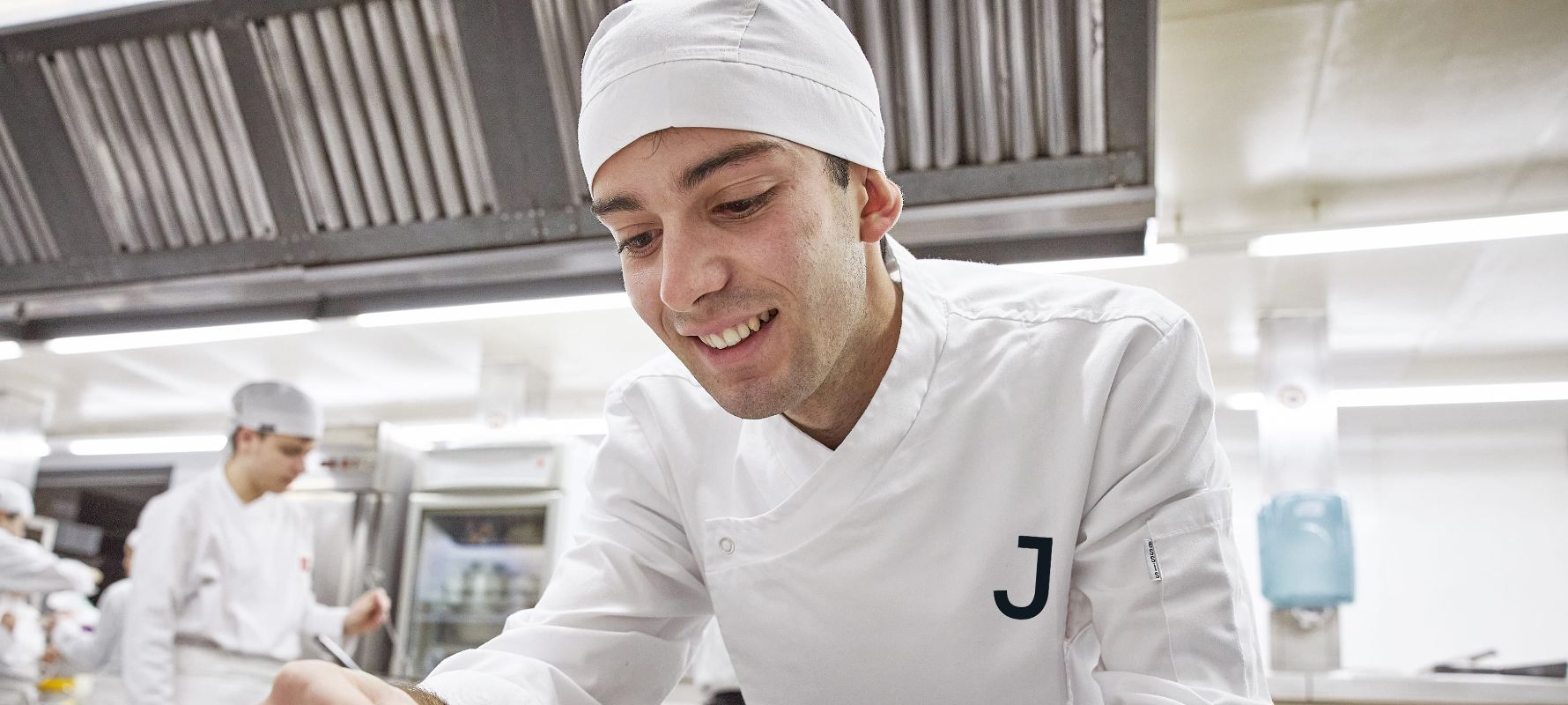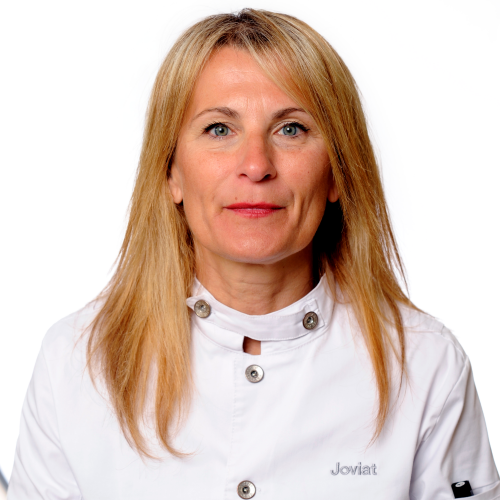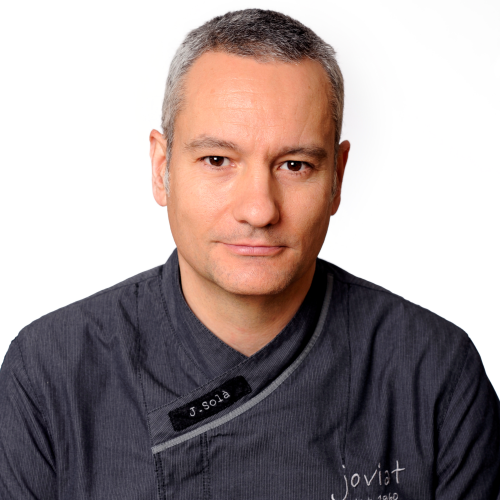| Name: | Food product preparation |
|---|---|
| Level: | Intermediate level professional training |
| Duration of the training cycle: | 2,000 hours |
| Training in the educational center: | 1,590 hours |
| Training in workplaces: | 410 hours |
The Intermediate Degree in Food Product Preparation trains students to prepare and package food products following production and quality plans, while maintaining work teams in accordance with current legislation on hygiene, food safety, environmental protection and occupational risk prevention.
Through a methodology that combines theory and practice , students learn to recognize , categorize and condition food products, promoting a new food awareness that focuses on the use of organic and local products. This allows them to learn about the complete production processes , from preparation to packaging, labeling, stock management and customer service, preparing them for various professional opportunities in the sector.
Schedules

Morning
Monday to Friday from 8:00 a.m. to 2:00 p.m.
Curriculum
Project work
Link to the University of Vic – Central University of Catalonia (UVic-UCC)
This collaboration provides students with a direct connection to the higher academic world, offering a gateway to university education and research.
International Projection and Erasmus+ Program
The Erasmus+ program provides students with the opportunity to carry out professional internships abroad, broadening their global vision of the food sector and improving their linguistic and intercultural skills.
Open Innovation: Own Methodological Seal
This project stands out for its commitment to open innovation, integrating new teaching methodologies that promote creativity, research and the development of new ideas within the food sector.
SOC Collaborating Center: Continuing and Occupational Training
Collaboration with the Employment Service of Catalonia (SOC) allows us to offer continuous and specific training adapted to the needs of the labor market, thus improving students’ employability options.
#2BE: Personal Growth, Leadership and Transformation Project
This project focuses on the personal development of students, enhancing their leadership skills, their ability to work in a team and their resilience, keys to their professional and personal success.















